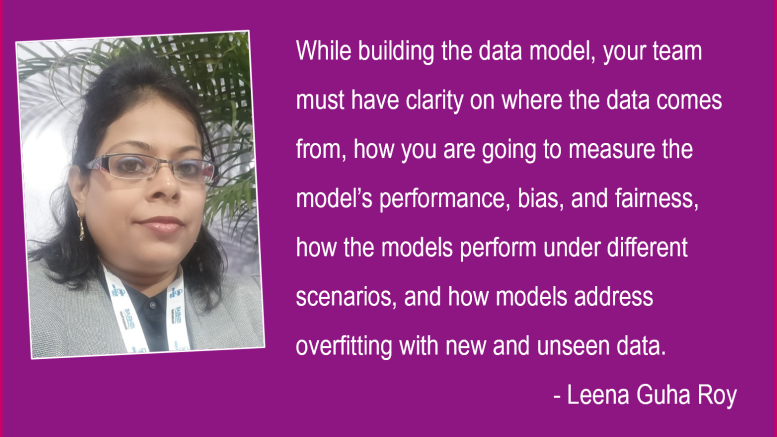B2B marketers rely heavily on AI for demand generation, go-to-market strategy, account-based campaigns, and product development. But AI alone isn’t enough for making strategic decisions. The real magic happens when human judgement is combined with AI in the right places.
Achieving this delicate balance ensures decisions are made ethically, fairly, and empathetically, but it’s not an easy task. In this article, I’ll guide you through the key points to help you navigate these challenges and strike the right balance between AI and human intelligence in your marketing efforts.
Let me ask you four questions to dive into.
- Do you have diverse data sets?
To build the foundation of a fair and effective AI model, you first need to ensure that the data is diverse and representative of all demographics. It may help you minimise decision biases, allowing the model to make more accurate predictions.
When your data encompasses a wide range of scenarios and populations, the model can learn generalised patterns that apply broadly to the system. That is how you can reduce the risk of overfitting and biassing outputs.
While building the data model, your team must have clarity on where the data comes from, how you are going to measure the model’s performance, bias, and fairness, how the models perform under different scenarios, and how models address overfitting with new and unseen data.
Once again, you need to ensure that the data is sufficient to have an accurate model output.
- Do you conduct regular data audits?
Maintaining the integrity of AI models is crucial. Therefore, you must implement a governance framework with regular audits. With such audits, you can ensure data accuracy, fairness, and alignment with ethical standards.
It can also help you identify and rectify any deviations in the data model and ensure the model remains reliable and trustworthy.
- Is your team aware of data transparency?
Transparency is essential for building trust with stakeholders who manage data. Your marketing team must work closely with data scientists to understand and explain how data goes into their AI models, how the team makes decisions, etc.
Understanding this black box is crucial to determining whether the AI recommendations are justifiable or not.
- Do you have a governance team to oversee AI operations?
It indicates ethical guardianship to ensure that the AI models function within ethical guidelines and complaints. As and when necessary, they can intervene with human intelligence, values, and company norms.
Now the question is how human judgement comes into play. During decision-making, your marketing team needs to understand the ‘why’ behind AI recommendations. This understanding helps them ensure that decisions are not only data-driven but also aligned with strategic goals.
While validating AI recommendations, marketers should have a thoughtful understanding of:
- Reasoning behind models’ recommendations
- Industry compliance and regulatory requirements
- Potential biases and detection know-how
- Model improvement and refinement scopes
These understandings may help them make high-stakes decisions and build trust with all stakeholders relying on AI models.
Before I end this piece, let me also share a few more points to have as prerequisites while building and working with the AI models. These are general practices across industries.
Prerequisites for building an AI model:
- Team having algorithmic accountability: ensuring transparency and understanding of AI decision-making processes
- Team responsible for bias mitigation: implementing controls to identify and address biases
- Team handling ethics and governance frameworks: establishing guidelines to ensure ethical AI practices
Balancing AI and human judgement in B2B marketing is a complex yet rewarding endeavour. By ensuring diverse data sets, conducting regular audits, maintaining transparency, and having strong human oversight, marketers can harness the power of AI while upholding ethical standards. Asking the right questions and understanding the “why” behind AI recommendations further ensures that decisions are fair, accurate, and trustworthy. In this balanced approach lies the future of effective and ethical B2B marketing.
The views and opinions published here belong to the author and do not necessarily reflect the views and opinions of the publisher.



Be the first to comment on "Decision-making for B2B Marketing: How to Balance AI and Human Judgement"